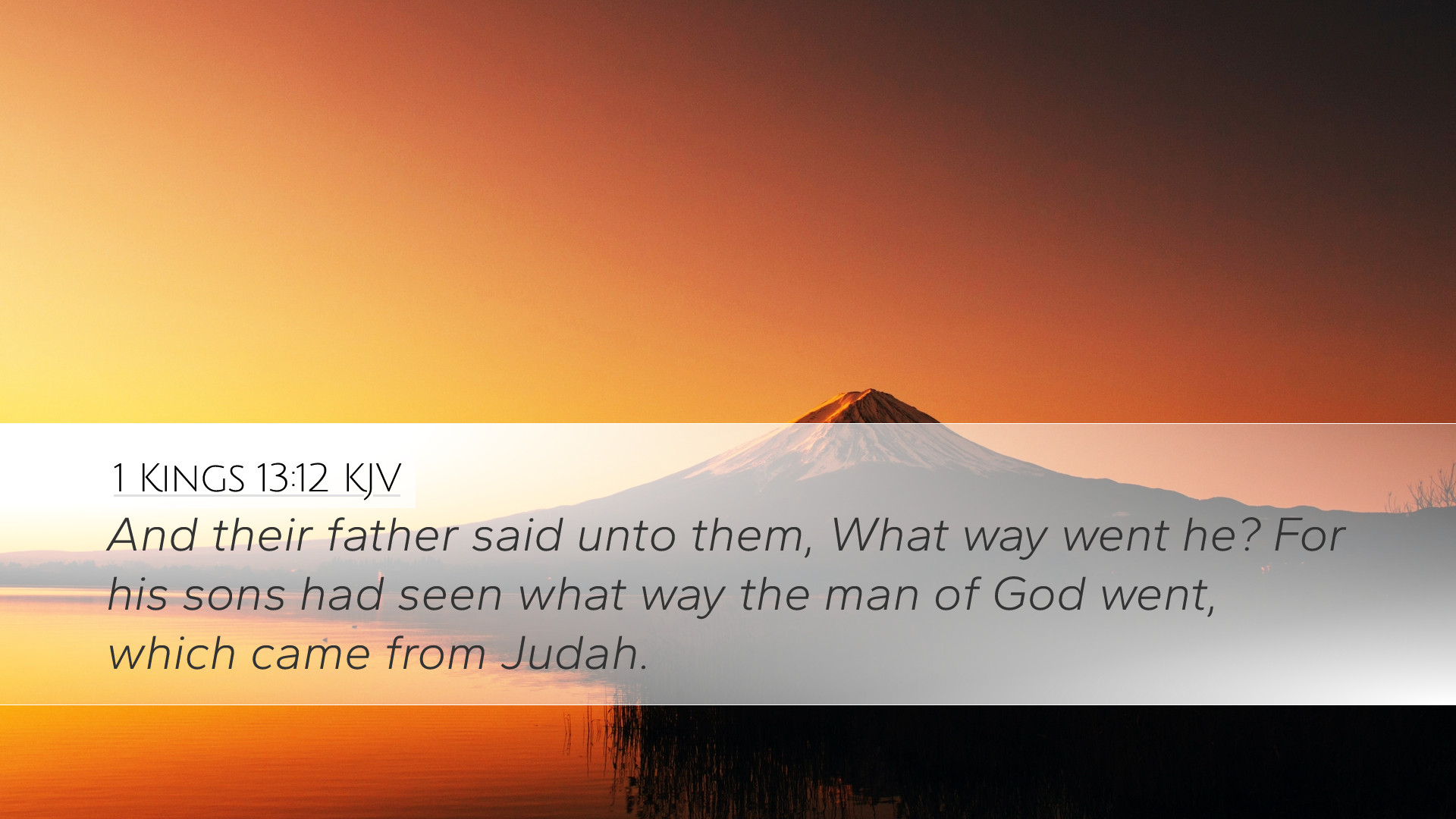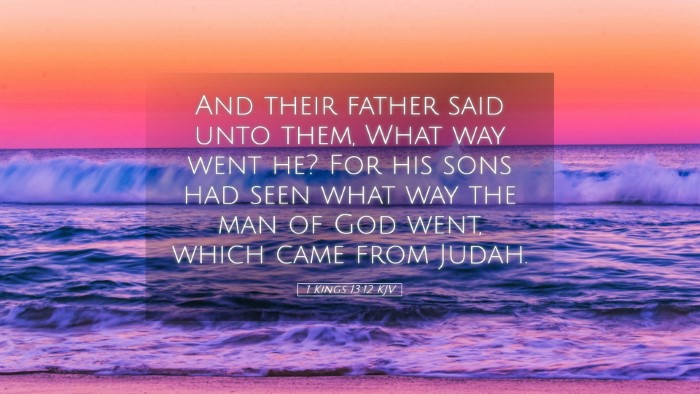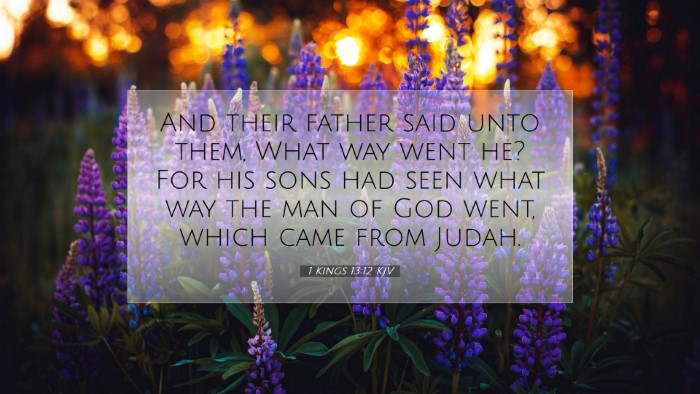Commentary on 1 Kings 13:12
Verse Context: The full narrative of 1 Kings 13 centers on a prophet from Judah who was sent by God with a vital message for Jeroboam, the king of Israel. The events unfold with the prophet being commanded to deliver a declaration of judgment against the altar in Bethel. He is later instructed not to eat or drink there and to return home by a different route. The verse in focus, 1 Kings 13:12, recounts the responses of the prophet's companions upon seeing his actions after the message was delivered.
Interpretation and Insights
1. The Message of Disobedience
The narrative highlights the themes of obedience and disobedience, exemplified in the actions of the unnamed prophet. Matthew Henry notes that the prophet's failure to adhere to God's command demonstrates the grave consequences of straying from divine instruction. The emphasis here is on the necessity of strict obedience to the directives given by God, even when social or personal pressures invite compromise.
2. The Role of the Witnesses
Albert Barnes points out the significance of the witnesses to the prophet's actions—the men who recognized him from Judah. They not only observed his actions but also appeared to have a role in calling him back to the command that God had originally given him. This dynamic serves as a cautionary tale, revealing how peer influence can lead one away from God’s will.
3. The Themes of Prophetic Authority
In his comprehensive commentary, Adam Clarke emphasizes the inherent dangers faced by prophets, particularly those traveling in strange lands. The prophet's initial authority derived from God was soon challenged by social interaction and manipulation. Clarke suggests that this passage reflects the larger tension between the prophetic calling and the societal expectations that often seek to undermine it.
Key Considerations for Theologians:
- Obedience to God: The primary takeaway from this narrative is the unwavering commitment to God's Word. The prophet's ultimate failure was a reminder that divine assignments must be carried out without deviation.
- The Nature of Temptation: This incident serves as a microcosm of the broader human experience with temptation. It illustrates how quickly one can be led astray, especially when offered justification by others.
- Accountability: The interchange between the prophet and the witnesses underlines an important lesson regarding accountability within ministry. It raises the question of how leaders and congregants can support one another in remaining faithful to divine mandates.
Lessons for Pastoral Application
In pastoral settings, the implications of 1 Kings 13:12 resonate deeply, focusing on leadership integrity and doctrinal fidelity. Pastors are reminded to honor their calling with vigilance and to recognize that their actions are often scrutinized by their congregations.
1. Promoting Spiritual Discernment
The story reinforces the need for spiritual discernment and robust theological understanding among leaders and church members alike. By cultivating a culture of discernment, both pastors and their congregants can better navigate the complexities of faith community dynamics.
2. Encouragement of Accountability Structures
Church leaders should foster environments where accountability is not only encouraged but established through concrete relationships. This encourages staff and congregation members to hold one another to commitments that reflect Biblical fidelity.
Historical and Cultural Context
Understanding the historical context of Israel during the reign of Jeroboam provides a richer backdrop for interpreting 1 Kings 13:12. The divided kingdom was marked by idolatry and spiritual disarray, creating an environment fraught with deception and unfaithfulness. The prophet from Judah represented a beacon of true worship amid this backdrop.
1. The Prophet's Role in Israel
In the turbulent socio-political climate of the northern kingdom, the prophet's role was crucial in steering the nation back to fidelity to Yahweh. The tension between the prophetic mission and the kingship of Jeroboam illustrates the struggles faced by faithful leaders in the ancient Near East.
2. Idolatry and its Consequences
The context also leads to the exploration of idolatry, which Jeroboam promoted among the people, leading them away from true worship. The insidious nature of idolatry as a recurrent theme in the biblical narrative reminds timeless readers of the dangers of complacency in faith practices.
Conclusion
This passage, with its brevity, encapsulates profound truths about obedience, the nature of divine calling, and the significant role of intercessory and communal accountability. The insights gleaned from the commentaries of Matthew Henry, Albert Barnes, and Adam Clarke converge towards a unified warning against disobedience while simultaneously offering a trail of hope and encouragement to remain steadfast in the face of temptation.
As we reflect on 1 Kings 13:12, may it inspire leaders, congregants, and students of scripture to engage fervently in the pursuit of God’s will, fostering faithfulness and obedience through the community and personal accountability.


